Understanding how to troubleshoot jeep air filter problems is crucial for every Jeep owner. The air filter acts as the lungs for your vehicle’s engine, ensuring that clean air mixes with fuel for efficient combustion. Neglecting the air filter can lead to various engine issues, including diminished performance, increased fuel consumption, and excessive emissions.
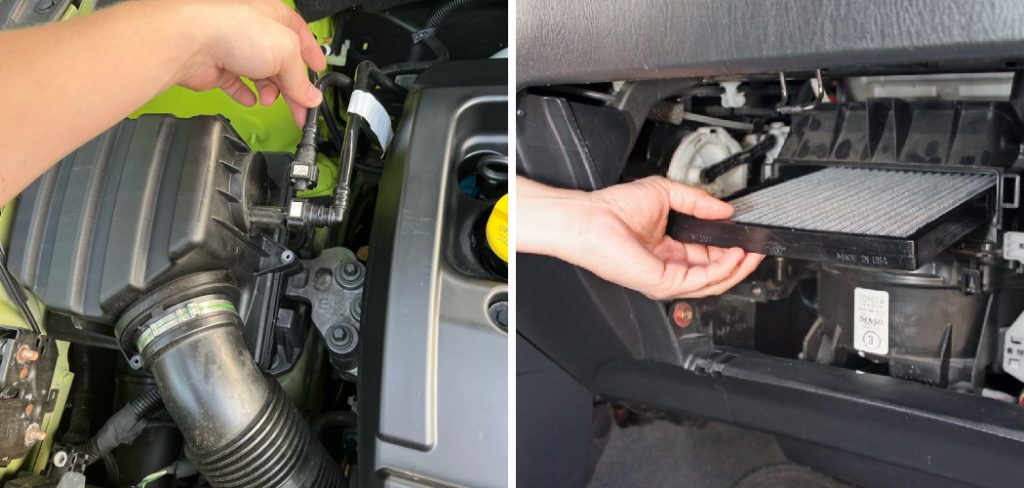
Symptoms such as a decline in acceleration, poor mileage, unusual engine sounds, or visible exhaust smoke can all signify a compromised air filter. This article will guide you through various troubleshooting steps, helping you inspect, diagnose, and resolve air filter issues to maintain your Jeep’s optimal performance.
Symptoms of a Dirty or Faulty Air Filter
When the air filter in your Jeep becomes clogged or damaged, it can lead to a range of performance issues that are hard to miss. Reduced engine power is one of the foremost symptoms of a compromised air filter.
This occurs because the engine struggles to receive adequate airflow required for combustion. Consequently, you may notice your Jeep exhibits poor fuel economy as the engine compensates for the restrictive airflow by burning more fuel. Rough idling is another telltale sign, with the vehicle experiencing unstable and erratic engine operation when stationary.
Additionally, observe the exhaust for black smoke or flames at the tailpipe, indicating an improper fuel-to-air ratio — a common occurrence stemming from a filthy air filter. While these symptoms often point to air filter problems, they can also indicate other underlying issues in the fuel system or engine mechanics. For instance, a malfunctioning oxygen sensor or worn spark plugs could similarly impact the engine’s performance.
Hence, while a dirty air filter may be the culprit, it’s advisable to consider these additional factors when diagnosing the cause of such symptoms.
Inspecting Your Air Filter
For Jeep owners, locating and inspecting the air filter is a straightforward procedure that varies slightly depending on the model. Typically, the air filter box is near the engine compartment’s front. In a Jeep Wrangler JK, for instance, it’s found on the driver’s side, secured with clips or screws. On a Grand Cherokee WJ, look towards the center or side of the engine bay for a rectangular housing.
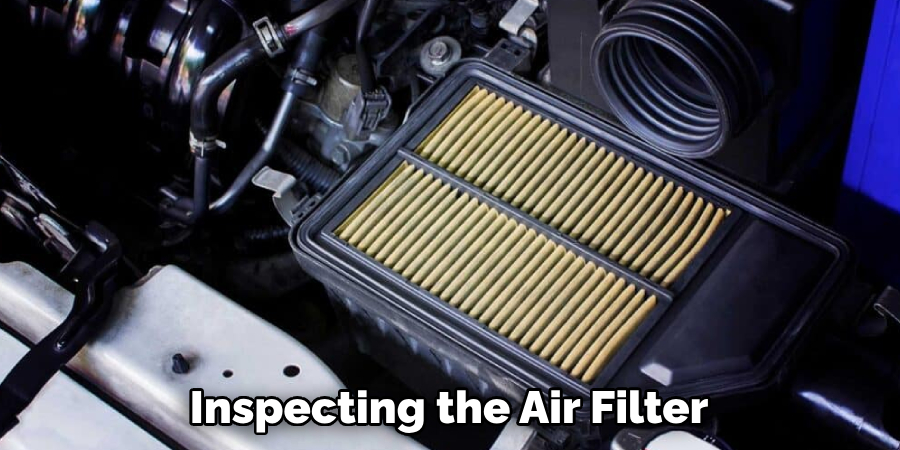
When removing the air filter for inspection, ensure your Jeep’s engine is off and cool. Release the clips or screws holding the air filter box cover. Once opened, gently lift the air filter out, being careful not to disturb any debris that could fall into the intake.
Inspect the filter under good lighting—direct sunlight or flashlight. Look for obvious signs of wear, like dirt accumulation, debris, tears, or oil saturation. A healthy filter should be a uniform color; contrastingly, spots or excessive darkening suggest it’s time for a replacement.
For minor dust buildups, you might use compressed air to blow from the clean side outwards to avoid driving the dirt deeper into the filter material. However, remember that compressed air might damage the filter if used improperly, so always keep a moderate distance and use short bursts. If the filter displays significant contamination or damage—it’s best to replace it with a new one to ensure your Jeep performs as expected.
Identifying the Root Cause
Beyond a visibly dirty filter, several potential culprits can impede your Jeep’s performance. The most common oversight may be the use of an incorrect air filter. Ensuring that you use the correct filter, specified by your Jeep’s model and engine, is vital. An incorrect filter may not fit properly within the housing, allowing unfiltered air to circulate into the engine, leading to potential damage and performance issues.
A leaking air intake system can also be a prime suspect. Common leak points include the hoses and connections within the intake system. If you hear a whistling or hissing noise while the engine is running, it could be a sign of a vacuum leak where the air intake system has been compromised. These noises, especially noticeable during acceleration, can significantly affect engine performance.
Additionally, sensor issues can produce symptoms that mirror those of air filter problems. The Mass Airflow (MAF) sensor, for instance, if faulty, can incorrectly measure the amount of air coming into the engine, leading to poor performance, rough idling, or trouble starting the vehicle.
To narrow down the cause, start with visually inspecting the air filter and checking for a proper fit. Then, listen to the engine for unusual sounds that could indicate a leak in the air intake system. Visually inspect hoses and connections for any signs of wear or damage. Lastly, if an air filter and intake system review doesn’t resolve the issue, consider consulting a professional to check the MAF and other related sensors. Each of these steps will help you determine the root issue affecting airflow into your Jeep’s engine.
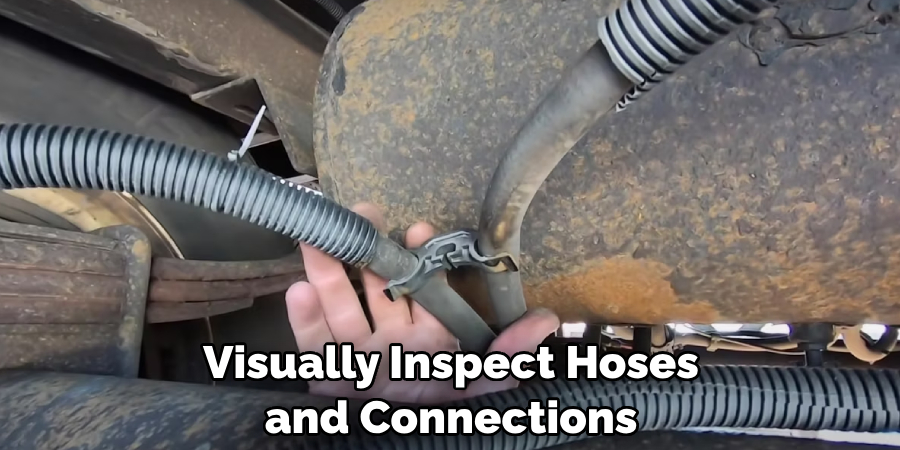
How to Troubleshoot Jeep Air Filter Problem: Solutions for Different Problems
1. Replacing a Dirty Filter:
Regular air filter replacement in your Jeep is critical for maintaining engine health and efficiency. A clean filter ensures optimal airflow, improving combustion and prolonged engine life. Generally, air filters should be replaced every 12,000 to 15,000 miles, but this interval may be shorter if you frequently drive in dusty or off-road conditions.
Check your Jeep model’s owner manual for the manufacturer’s specific recommendations. For example, a Jeep Wrangler might be different from a Grand Cherokee due to their design and typical use cases. Always opt for high-quality filters that are rated for your specific Jeep model to ensure maximum performance and protection against contaminants.
2. Addressing Leaks:
Detecting leaks in the air intake system can often be accomplished through a thorough visual inspection. Look for cracks or disconnected hoses, which may cause a drop in performance. A smoke test — where smoke is introduced into the intake system and observed for where it escapes — is an effective DIY method for identifying leak points.
However, due to the complexity of modern intake systems and the possibility of damage from improper handling, it’s wise to seek professional help to ensure the integrity of the repairs. A qualified technician can thoroughly inspect, diagnose, and repair leaks to safeguard engine performance.
3. Diagnosing Sensor Issues:
Sensor issues can be elusive and often require advanced diagnostic tools to identify. Sensor issues might be to blame if you’re experiencing symptoms like poor fuel economy, erratic performance, or if your check engine light illuminates. Common indicators include error codes that can be read with an On-Board Diagnostics (OBD) scanner.
Given the technical nature of sensors such as the Mass Airflow (MAF) or oxygen sensors, a trained mechanic should be consulted for proper testing, diagnosis, and replacement. Accurate sensor functions are critical to engine performance and emissions control, and addressing them promptly can save you from more significant issues.
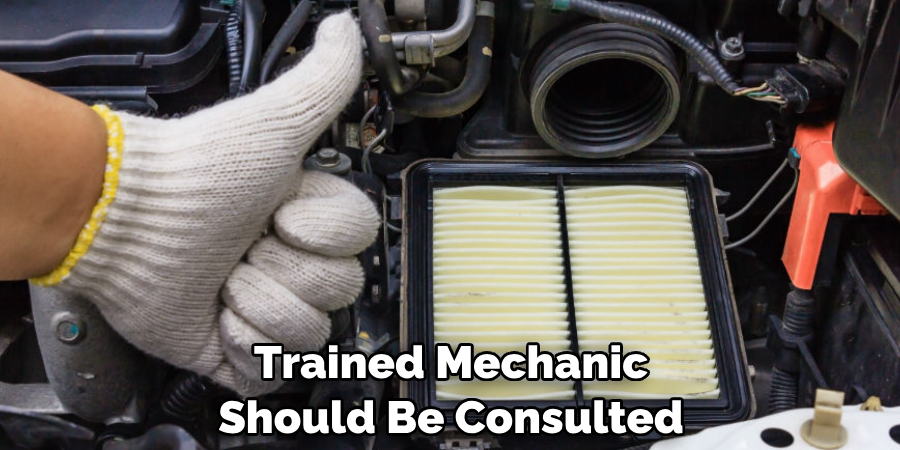
Deep Dive into Specific Jeep Models
When examining common air filter-related issues in specific Jeep models, it’s important to consider the unique characteristics and challenges of each. For instance, the Jeep Wrangler JK is renowned for its off-road capabilities, frequently exposing it to dusty and muddy conditions.
As such, Wrangler JK owners may need to check and replace their air filters more often than recommended for standard driving conditions. A tell-tale sign of a clogged air filter in the Wrangler JK is a marked decrease in fuel efficiency and horsepower, particularly in scenarios demanding higher engine output, like climbing or navigating rough terrain.
Conversely, the Grand Cherokee WJ – with its more urban alignment – might not encounter heavy particulate environments as commonly, but it is still susceptible to filter issues. A peculiar trait of the Grand Cherokee WJ is its sensitive airflow system that can lead to sensor alerts if the air filter is improperly fitted or if the housing is not sealed correctly post-maintenance.
Owners have reported cases where these issues have led to the check engine light activates, which could easily be misdiagnosed without proper awareness of the model’s characteristics.
For both models, Jeep forums such as JeepForum.com and WranglerForum.com offer valuable resources where experienced owners share their insights. These communities have threads dedicated to maintenance tips and troubleshooting, including how to address air filter concerns. Here, members often post DIY guides, videos, and step-by-step instructions specific to Jeep models, which can be indispensable for those looking to tackle maintenance at home.
In summary, addressing air filter problems in Jeep models like the Wrangler JK and Grand Cherokee WJ demands understanding their unique usage patterns and airflow systems. By utilizing model-specific forums and online resources, owners can gain additional knowledge and learn practical troubleshooting tips to maintain optimal engine performance and longevity.
Advanced Troubleshooting Techniques
Advanced troubleshooting of air filter issues calls for a deeper dive into diagnostic tools and procedures that can pinpoint and resolve the more complex problems. Utilizing a scan tool is an effective way for Jeep enthusiasts to gather extensive data on the health of their vehicle’s engine.
These tools interface with the vehicle’s On-Board Diagnostics (OBD) system to read sensor data and engine codes, providing valuable insights that surpass what is visible to the eye. A scan tool can flag issues related to the Mass Airflow (MAF) sensor or other components that might impact airflow and engine performance.
Moreover, when diagnosis points towards clogged or dirty components, performing an intake system cleaning can substantially improve the performance. This procedure often involves using specialized solutions designed to dissolve and remove hardened deposits without damaging sensitive engine parts.
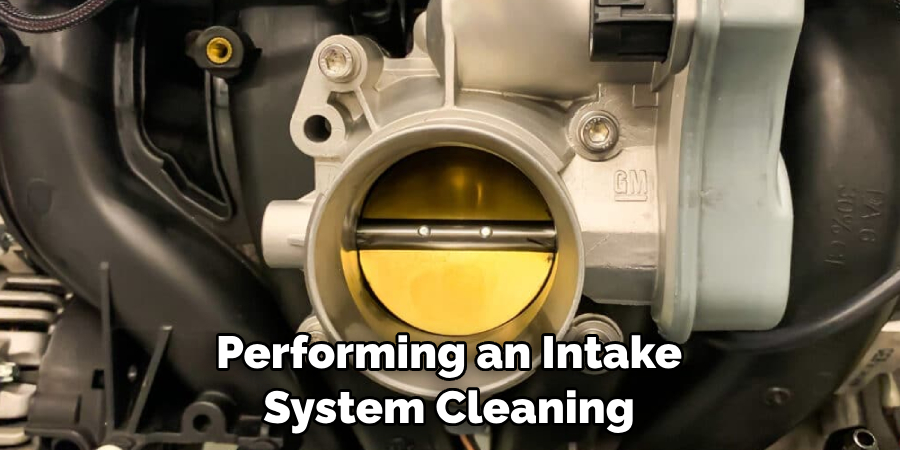
While some vehicle owners may have the expertise to undertake a DIY cleaning, it is usually recommended to engage professionals who have the right tools and technical knowledge to prevent any potential harm to the engine or its subsystems.
If sensor inconsistencies are suspected, qualified technicians can perform specific tests on sensors related to airflow, like the MAF or O2 sensors. These tests often require specialized equipment and an understanding of the intended sensor outputs under various operating conditions. Precision and accuracy in testing these sensors are of the utmost importance as they are crucial for engine management and emission controls.
Attempting advanced troubleshooting techniques without the appropriate safety measures and technical knowledge can lead to further complications, including damaging the engine. These advanced methods must be carried out with great care by professionals to ensure vehicle safety and optimal engine function.
That’s it! You’ve now learned how to troubleshoot Jeep air filter problems, diagnose sensor issues, and gain insights into specific Jeep models. Remember to regularly check and clean your air filter to maintain optimal engine performance and longevity. If you encounter any problems that you’re not confident in addressing yourself, don’t hesitate to seek professional help from a qualified technician. Keep exploring the capabilities of your Jeep, and stay safe on the road! Happy driving! Overall,
Preventive Maintenance Tips
Preventive maintenance is key to minimizing the chances of experiencing air filter issues and ensuring your Jeep operates efficiently. Here are several recommendations to keep in mind:
Maintaining a Clean Driving Environment:
Exposing your vehicle to dusty or debris-laden roads can significantly impact the life of your air filter. When driving, aim to avoid environments heavy with particulates, such as construction zones or unpaved paths, wherever possible. Also, storing your Jeep in a garage or under a cover can prevent unnecessary exposure to dust when not in use. A clean driving environment will help maintain the air filter’s integrity for a more extended period.
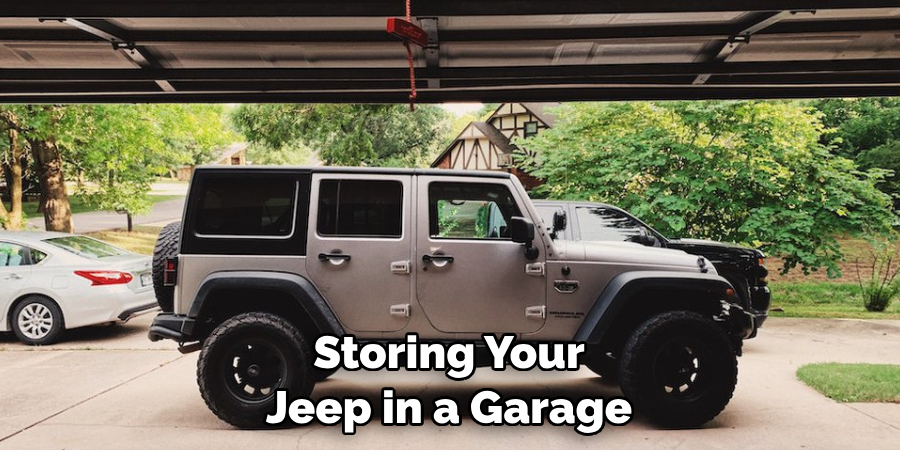
Regular Air Filter Inspections:
A proactive approach to inspecting your air filter can go a long way. If you frequently drive in dusty conditions, it’s prudent to check your air filter more often than the manufacturer’s recommended intervals. Look for noticeable signs of dirt buildup, and clean or replace the filters as necessary. Early detection and maintenance can avert compromised engine performance.
Choosing High-Performance Filters:
Investing in high-performance air filters can be beneficial in the long run. These filters are usually made with superior materials and technology, offering higher dirt capacity and allowing your engine to breathe better, even in challenging conditions. Although they may come at a premium, the extended lifespans and potentially improved engine efficiency can justify the initial cost.
Following Manufacturer Recommendations:
Always refer to your Jeep’s owner’s manual for the correct air filter type and replacement intervals. Each model may have specific needs, and adhering to these guidelines ensures you won’t inadvertently damage sensitive engine components or void your warranty.
Following the manufacturer’s recommendations also entails buying quality filters that meet or exceed OEM specifications. This will ensure the best fit and function, optimizing your vehicle’s performance and maintaining its health.
When to Seek Professional Help
While performing regular maintenance on your Jeep and trying to troubleshoot certain issues yourself is commendable, there are scenarios where it is advisable to seek professional help. Complex issues, such as oil leaks in the air filtration system, sensor malfunctions, or intricate mechanical problems, should be addressed by a certified mechanic.
Specifically, if you notice persistent performance issues despite changing the air filter or if diagnostic codes suggest sensor or electrical faults, professional expertise is paramount.
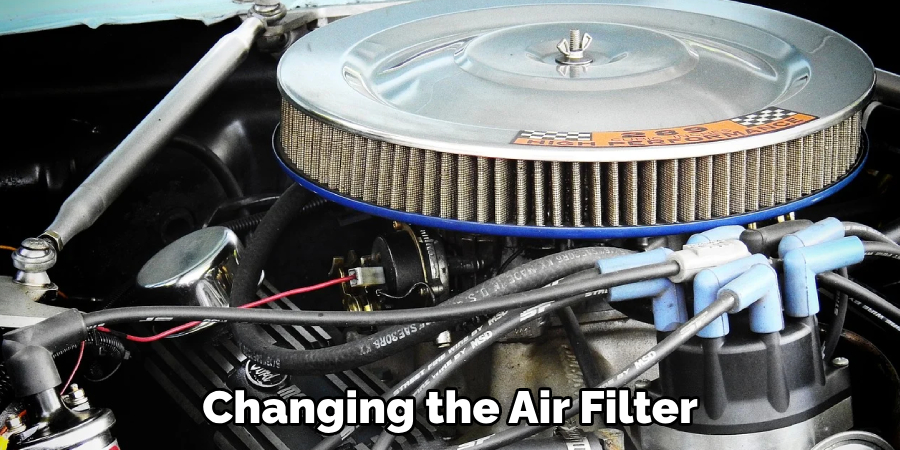
The benefits of a professional diagnosis cannot be overstated. Trained mechanics have access to advanced tools and have a wealth of experience that enables them to accurately identify and resolve problems. They can ensure that any repairs are carried out correctly, thus averting potential further damage that could arise from erroneous DIY attempts. A professional repair also comes with the peace of mind of warranties or guarantees on the work performed.
Costs associated with professional services may vary depending on the severity of the issue and the parts involved. However, investing in expert repair can often be more cost-effective in the long run, as it prevents the cascading effects of unresolved or misdiagnosed problems, which could result in more expensive fixes. Remember, the expenses of professional intervention reflect the expertise and specialized equipment employed to maintain the vehicle’s integrity and safety on the road.
Frequently Asked Questions (FAQs)
How Often Should I Change My Jeep’s Air Filter?
The frequency of air filter replacement can vary based on several factors, including the typical driving environment and vehicle usage. As a rule of thumb, check your Jeep’s owner’s manual for the manufacturer’s recommendation, but if you often drive in dusty conditions, you may need to change it more frequently.
Can I Clean My Jeep’s Air Filter Instead of Replacing It?
Some air filters are designed to be cleaned and reused. If you have a high-performance, washable air filter, follow the cleaning instructions provided by the manufacturer. It is more advisable to replace regular paper filters when they get dirty.
What Are the Signs of A Dirty Air Filter?
Common signs include a noticeable decrease in fuel efficiency, unusual engine sounds, a misfiring engine, or a check engine light. If you notice any of these symptoms, inspect your air filter immediately.
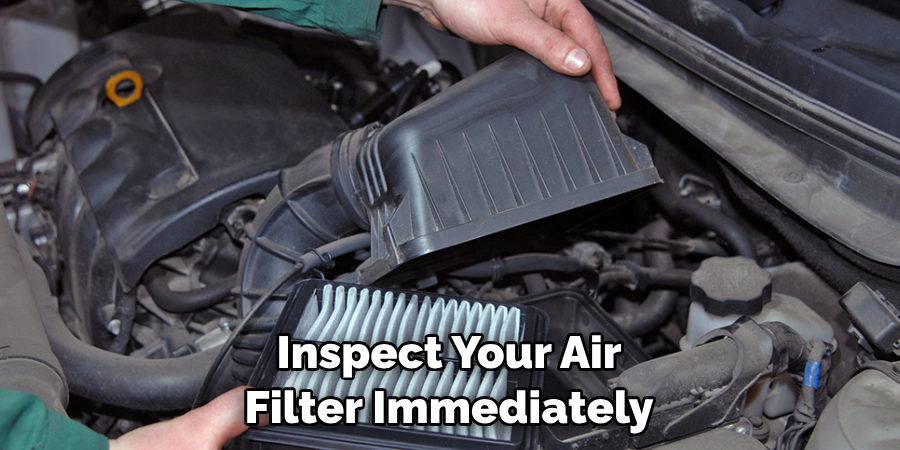
Does Upgrading to A High-Performance Air Filter Make a Difference?
High-performance air filters can provide improved airflow and better filtration, potentially enhancing engine efficiency. However, the impact varies with vehicle conditions and driving habits. Always weigh the cost against the expected benefits for your particular situation.
Conclusion
In conclusion, your Jeep’s air filter system is critical to its performance and longevity. Proactive maintenance, including regular inspections and clean driving habits, is crucial. When complex issues arise, professionals should handle sensor malfunctions and mechanical troubles.
Staying well-informed about your specific Jeep model will empower you to make the best choices for your vehicle’s upkeep. We thank you for following this guide, and we hope it serves you well on the road ahead. Proper care ensures your Jeep continues to provide the reliable and exhilarating off-road experience you cherish. Thanks for reading our post about how to troubleshoot jeep air filter problem.

About
JeepFixes Team is a skilled author for Jeep Fixes, bringing 6 years of expertise in crafting a wide range of jeep fixes. With a strong background in jeep fixes work, JeepFixes Team’s knowledge spans various types of fixtures, from decorative pieces to functional hardware, blending precision with creativity. His passion for jeep fixes and design has made him a trusted resource in the industry.
Professional Focus:
Expert in Jeep Fixes : JeepFixes Team aesthetic specializes in creating durable and innovative jeep fixes, offering both appeal and functionality. His work reflects a deep understanding of jeep fixes techniques and materials.
Sustainability Advocate : He is dedicated to using sustainable practices, ensuring that every fixture is crafted with eco-friendly methods while maintaining high-quality standards.
In his writing for jeep fixes, JeepFixes Team provides valuable insights into the latest trends, techniques, and practical advice for those passionate about jeep fixes, whether they are professionals or DIY enthusiasts. His focus on combining artistry with engineering helps others discover the true potential of jeep in design.
